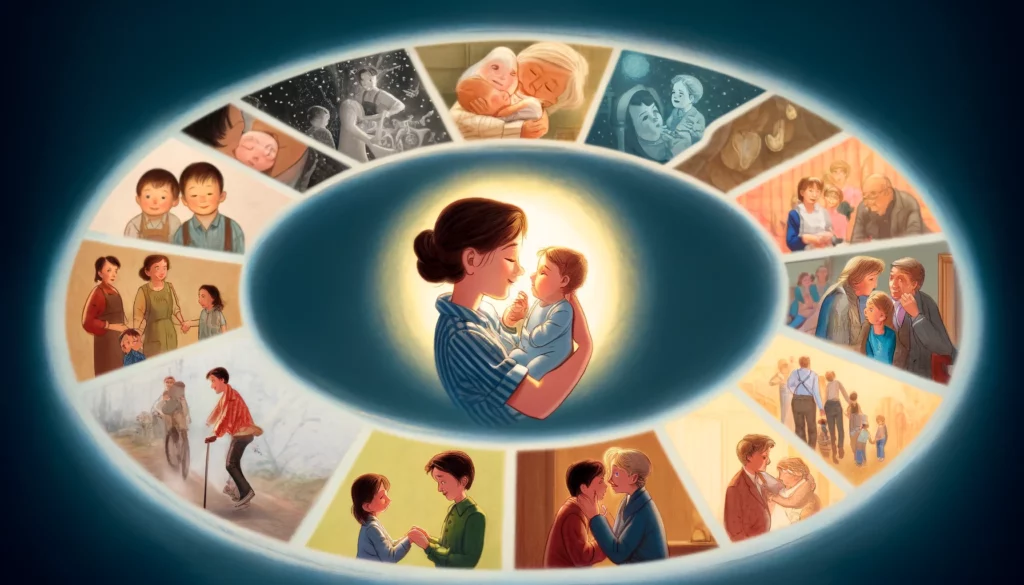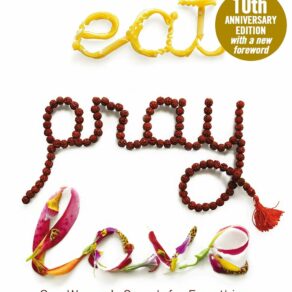“Love You Forever” by Robert Munsch, illustrated by Sheila McGraw, unfolds as a heartfelt exploration of the enduring bond between a mother and her son. The narrative begins with a poignant scene where a young woman holds her newborn son, gazing at him with deep affection. She softly sings a lullaby that pledges her eternal love and support, promising to always cherish him as her child.
As the story progresses, we witness the son growing through various stages of childhood and adolescence. Despite the challenges that each phase brings, the mother maintains her nightly ritual. Each night, she sneaks into her son’s room to hold him and sing her lullaby, reaffirming her unwavering love. This ritual continues even as the boy evolves into a man, depicting the timeless nature of a parent’s love.
The roles begin to reverse as the mother ages and becomes weaker. The son, now grown, visits his elderly mother. In a touching role reversal, he holds her gently and sings the lullaby she once sang to him, echoing the same promise of lifelong love and care. This act signifies the cyclical nature of care and affection within families.
The story culminates with the son returning to his own home, where he holds his newborn daughter and sings the same lullaby, suggesting that the legacy of love and nurturing will continue through generations. The book closes on this note, emphasizing that the bonds of love, once formed, are eternal and ever-regenerating.
Related: Best Nonfiction Books for Kids
Love You Forever Discussion Questions
Creating engaging discussion questions for “Love You Forever” by Robert Munsch can help readers delve deeper into the themes and emotions of this touching story. Here are some thought-provoking questions you might consider for your book club or classroom:
- Emotional Connection: How did the book make you feel as you read through the various stages of the mother’s life and her son’s growth? Can you relate these feelings to any of your personal experiences with family?
- Theme of Unconditional Love: The mother’s refrain, “I’ll love you forever, I’ll like you for always, as long as I’m living my baby you’ll be,” recurs throughout the book. Discuss how this phrase encapsulates the theme of unconditional love. How does this portrayal of unconditional love affect the way we view the parent-child relationship?
- Role Reversal: As the story progresses, the roles of the mother and son change. What does this role reversal say about the cycle of life and caring within families? How does this impact your understanding of your own family dynamics?
- Illustrations and Emotion: How do the illustrations by Sheila McGraw enhance or complement the text? Discuss how the images contribute to your understanding of the characters’ emotions and the overall mood of the story.
- Cultural Reflections on Parenthood: In what ways does this story reflect or challenge cultural norms about parenting and the stages of a child’s life in your community or in broader society?
- Memorable Moments: Which part of the book was most memorable for you, and why? How does Robert Munsch use repetition and rhythm to make certain parts of the story stand out?
- Application to Personal Life: How might the messages in “Love You Forever” influence the way we think about or interact with our own parents or children? What lessons can be drawn from the book that apply to everyday life?
- Author’s Purpose: Robert Munsch wrote this story as a song after he and his wife had two stillborn babies. Knowing this background, how does it change your interpretation of the story or the emotions it conveys?
Final thoughts
In closing, ‘Love You Forever’ by Robert Munsch remains an essential read least for its profound simplicity and its portrayal of love’s eternal cycle. It is a book that gently nudges us to acknowledge the full circle of life and relationships, fostering a deep appreciation for the enduring bonds that connect us. Through the ritual of reading and discussing this book, students engage not only with language and literature but also with the universal themes of love and familial devotion that transcend cultural boundaries. This book, with its poignant narrative and the precious takeaways it offers, will undoubtedly continue to be a cornerstone of emotional literacy and literary affection for readers of all ages.





